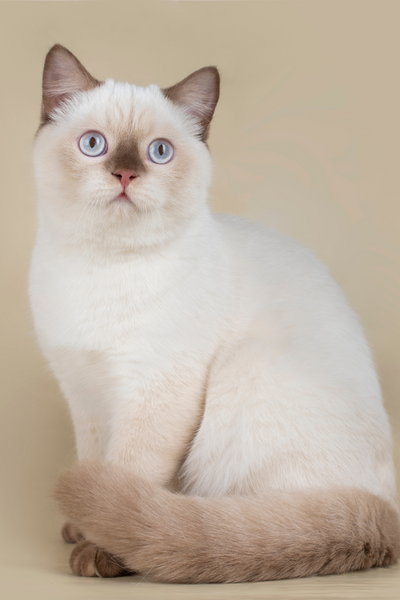
6 Essential Nutrients Your Cat Needs
As a cat owner, you want your little feline to be healthy and live as long as possible. For this to happen, you have to make sure your pet receives a balanced diet that meets all their nutritional needs. If their diet is poor in nutrition, your cat may develop certain health problems. These problems arise from vitamin-mineral deficiencies, lack of quality animal protein, dehydration, or amino acid deficiencies.
Therefore, if you want your pet to live as long as possible and have a healthy life, here are 6 essential nutrients cats need to thrive:
- Animal protein
- Fats
- Amino acids
- Vitamins
- Mineral
- Water
1. Animal Protein
Unlike dogs, cats are obligate carnivores and need a lot of animal protein in their diet. As a result, cats should not be fed a plant-based diet. For normal growth and general health, cats must have animal protein.
An adult cat needs at least two grams of animal protein per pound of body weight (~4g/kg). If your cat is healthy and has no dietary restrictions, they will need to consume 35-45% animal protein per day to maintain their health.
Proteins are macromolecular organic substances made up of chains of amino acids. Cats break down the animal protein in their food into amino acids which they burn for energy. Cats cannot produce all the amino acids they need, so they must get them from their diet.
Adequate nutrition will ensure the optimal development of your cat, minimize the risk of disease, and keep their teeth clean and strong.
2. Amino Acids
Cats need 20 different amino acids, but only 11 are essential. They are considered essential because cats cannot produce these 11 amino acids on their own. Therefore, they must be obtained from their diet. Here is what can happen if your cat does not get these essential amino acids:
- Their physiological function will be affected.
- The synthesis of essential proteins will be hindered.
- Their health can be compromised.
- In the case of kittens, their development will be affected.
The 11 essential amino acids are:
- Arginine
- Methionine
- Histidine
- Phenylalanine
- Isoleucine
- Leucine
- Threonine
- Tryptophan
- Lysine
- Valine
- Taurine
Taurine and arginine are unique in that they can only be obtained from consuming meat and meat by-products. Therefore, if you want your cat to follow a plant-based diet, it is critical that you add these amino acids to their food.
Taurine fulfills multiple functions in your cat's body, including:
- Regulating calcium levels.
- Forming bile salts.
- Preventing liver diseases.
- Supporting the development of the nervous system.
- Balancing electrolytes and metabolic processes.
- Supporting immune system health and antioxidant function.
- Regulating calcium inside and outside of cells.
- Supporting healthy function of the heart and eyes.
- Maintaining the proper function of cell membranes.
Arginine contributes to the synthesis of urea in the liver which supports detoxification by reducing the concentration of ammonia in the blood. If arginine is not present in your cat's diet, ammonia poisoning can occur. This can be fatal for your cat with death occurring within hours.
3. Fats
For cats, fat is a great source of energy. However, felines do not need all animal fats - only bird or fish fat. Avoid buying products that vaguely refer to "fats of animal origin" on the label without the manufacturer clearly indicating what animal the fats come from.
More specifically, cats need omega-3 and omega-6 unsaturated fatty acids. Although most fats are usually rich in omega-6, you need to make sure your cat gets both in equal amounts.
Essential fatty acids have the following benefits:
- Helping the body fight against inflammation.
- Maintaining healthy fur and skin.
- Decreasing the level of triglycerides in the blood.
- Supporting the functions of the heart.
- Contributing to fetal brain development.
Sources of essential fatty acids are flax seeds and salmon oil.
4. Vitamins
As long as your cat is fed quality food, no additional vitamin supplements are necessary in their diet. Supplemental vitamins can be given in inappropriate amounts and become toxic for your pet. Therefore, do not give your cat vitamins unless your veterinarian advises you otherwise.
Here are some of the essential vitamins cats need:
· Vitamin A – This vitamin improves eyesight, strengthens the immune system, and helps with cell regeneration and the optimal functioning of internal organs. Through its antioxidant effect, Vitamin A protects cells against the effects of free radicals.
· B Vitamins – This vitamin represents a complex of eight water-soluble vitamins that have an important role in maintaining an optimal level of energy, in the functioning of the brain, and in cell metabolism.
· Vitamin C – This vitamin is a powerful antioxidant and protects cells against oxidative stress caused by free radicals.
· Vitamin D – This vitamin contributes to the regulation of calcium and phosphorus levels, which leads to the strengthening of bones, muscle health, and a high level of immunity.
· Vitamin E – This vitamin helps the immune system and has a strong antioxidant role in protecting cells. In addition, vitamin E regulates cholesterol levels, maintains the health of the blood vessels, and prevents the thickening of the arteries. It also helps heal wounds and maintains skin health.
· Vitamin K2 – This vitamin can improve overall heart health, reducing the risk of cardiovascular damage. Vitamin K2 activates a protein (anti-calcific protein – matrix Gla protein) that prevents the formation of calcium deposits in the walls of blood vessels.
5. Minerals
In addition to vitamins, minerals are necessary in your cat's diet if you want them to stay healthy. Minerals are nutrients that are present as ions or inorganic components. They are essential for your cat's body as a deficiency could lead to serious health problems.
Mainly, minerals fulfill the following roles:
- Skeletal structure
- Acid-base balance
- Fluid balance
- Cellular function
- Nerve conduction
- Muscle contraction
Here are some of the essential minerals cats need:
- Iron
- Selenium
- Calcium
- Magnesium
- Potassium
- Sodium
- Chlorides
- Copper
- Zinc
- Iodine
The correct ratio of calcium to phosphorus is extremely important for your cat. It should be about 1.1 to 1 for optimal bone metabolism, but this ratio can vary from 0.9:1 to 1.5:1 without causing problems.
Sodium, chlorides, and potassium regulate the water level in your cat's body and aid in the absorption of nutrients.
6. Water
Water is vital for cats. They can survive almost two weeks without food. But without water, they will die in 2 to 3 days. For this reason, it is very important that your cat has access to a source of water whenever they want some. Otherwise, dehydration will set in within only a day. In addition, make sure your pet is drinking fresh water daily.
If your cat is not a big water drinker, like many other cats, add wet food to their daily diet (one meal should be with wet food). Another trick is to place multiple water bowls in the house in different areas to encourage your cat to drink. It is important to promote hydration because it encourages general wellbeing while reducing the risk of urinary problems.
Conclusion
Cats are obligate carnivores that mainly need animal protein in their diet to thrive. As a cat owner, you want your pet to be healthy and live as long as possible. For this to happen, you have to make sure your pet receives a balanced diet that meets all their nutritional needs.
Even with healthy high quality pet food, you do not want to overfeed your cat. Hearty meals with large amounts of food at once are not good for cats. These animals must consume small meals at short intervals, just as it happens in the wild.
Besides animal protein, cats also need fats, vitamins, minerals, amino acids, and water for optimal health. These essential nutrients are usually found in quality pet foods made with high quality animal proteins and well rounded ingredients.
There is usually no need to supplement quality cat food yourself. On the other hand, if you supplement your cat’s food in excess without speaking with your vet, this can lead to other health problems.

Post a Comment!